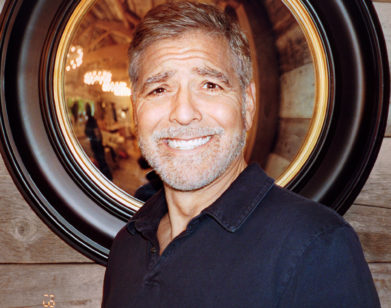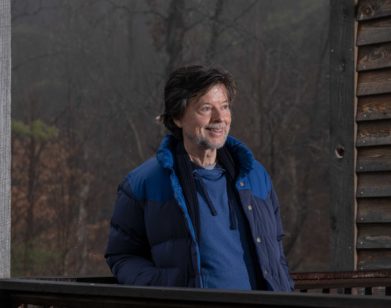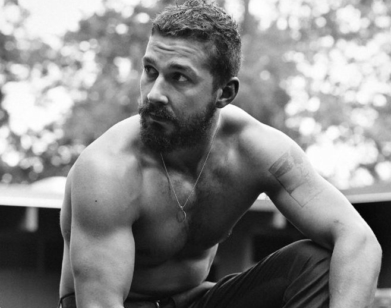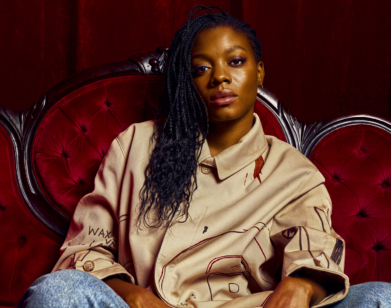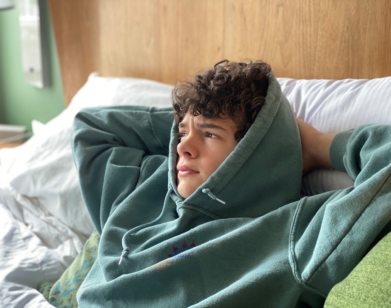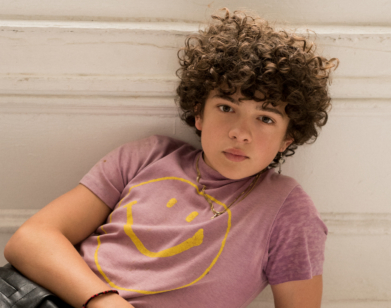Director Alma Har’el on What the World Doesn’t Know About Shia LaBeouf
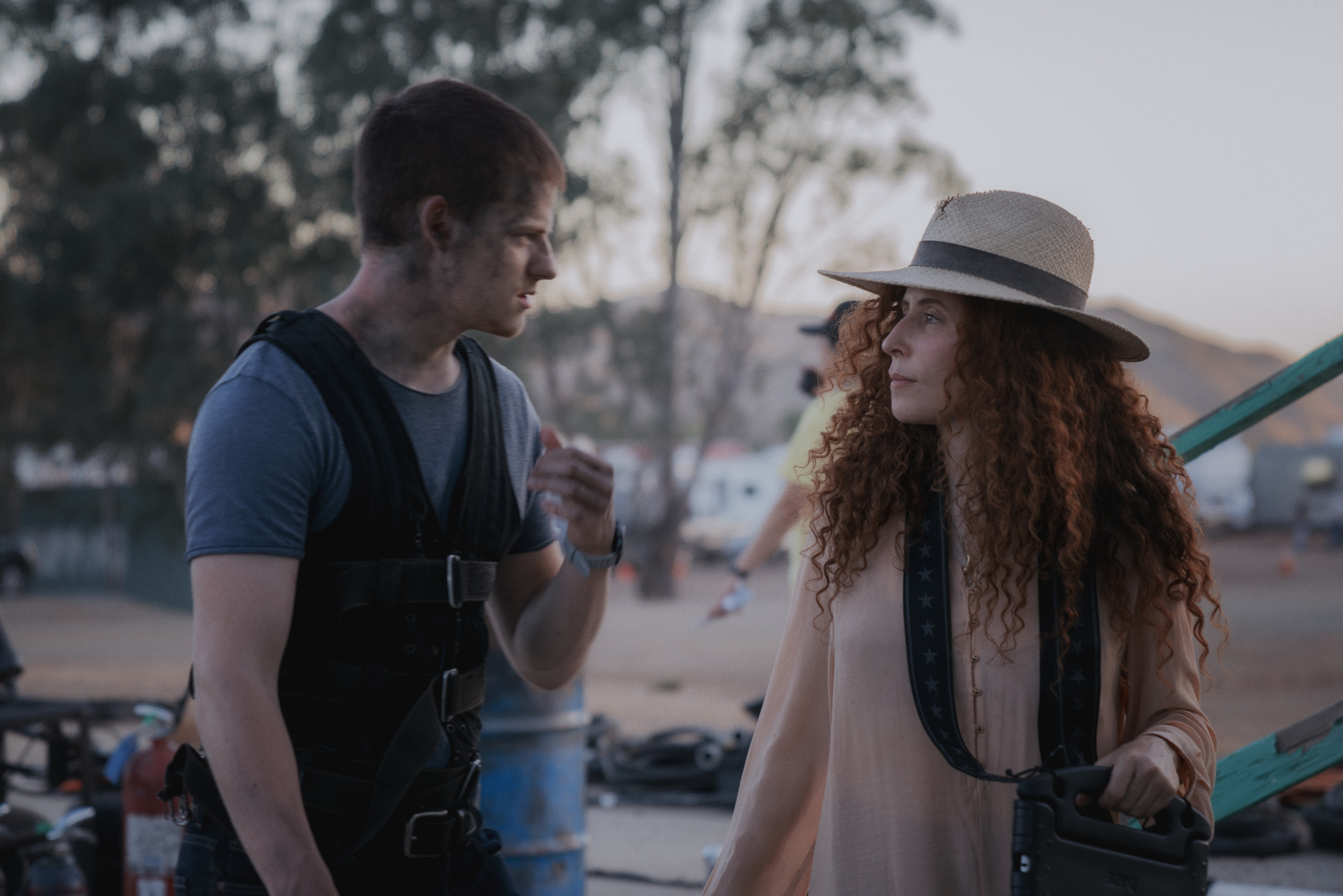
Har’el with Lucas Hedges on the set of Honey Boy.
Alma Har’el is the flame-maned Israeli director behind Honey Boy, a heart-wrenching and feverish work of autobiography written by Hollywood wild child Shia LaBeouf. From Har’el’s hazy and provocative music videos for the likes of Sigur Rós and Beirut to her unique blend of documentary and drama in LoveTrue (2016), the director’s oeuvre lives at the intersection of visual fantasy and emotional force.
Honey Boy, which hits theaters November 8, is a gauzy swirl of mood and memory, shuffles between LaBeouf’s childhood in a Los Angeles motel (played by Noah Jupe) and a 2017 stint in court-mandated rehab (Lucas Hedges). The film is born of the actor’s time in therapy, and indeed it feels like an urgent work of self-exploration (and self-explanation) for LeBeouf. Through Har’el’s intimate understanding of the actor’s mental health struggles and her signature psychodramatic style, the director maps a color-drenched saga of concentric traumas. LeBeouf himself plays his own father, an abusive rodeo clown with a thinning mullet and a criminal record, foisting his own childhood experiences onto the young Jupe. In Honey Boy, Har’el creates a world in which memory is both impressionistic and razor sharp.
———
MARA VEITCH: So you got your start VJing, which is a term I admit I’ve never heard before.
ALMA HAR’EL: I know, I’m bringing it back from the 2000s. You’re on stage and perform at parties like a DJ. I mean, it was the decade of EDM, which was huge in Europe and there were just these massive events with screens everywhere. Basically, I would make my own video art and loop it with clips from tapes, or movies, or wherever.
VEITCH: The depths of YouTube?
HAR’EL: I think it was before YouTube!
VEITCH: Scary.
HAR’EL: I would put it all together with two laptops and a mixer. So it’s a combination of like archival stuff, plus stuff you’ve filmed before and scenes you’re filming live of the crowd—just tying all these stories together on different screens.
VEITCH: And you just edit…
HAR’EL: …In front of everyone. It was the free-est thing I’ve ever done. Music has been a huge element in my work, but with VJing it was another level. You just play films as if they were an instrument. It was quite a beautiful time in my life where I saw the power that visuals—my visuals—have on people. I was struggling to recognize myself as an artist, so to see people reacting to the things you make in real time is something that very much connected me to art.
VEITCH: What role did this experience play in preparing you to make feature-length films?
HAR’EL: It helped me find my voice, which I think is the one thing that nobody else can help you do. You can have all the connections in the world, which I didn’t, or all the money in the world, which I didn’t, or all the opportunities, which I didn’t. But if you don’t have a voice, then you really don’t have anything.
VEITCH: I want to talk about Honey Boy, your latest film. How did you find Shia? How did you end up on this project?
HAR’EL: He actually found me. I made my first documentary in 2011. It came out on DVD, and Shia just found it by accident at Amoeba Records in Los Angeles. They accidentally filed it in the Bob Dylan section. [Laughs.] So Shia stepped into Amoeba Records…
VEITCH: …Looking for Bob.
HAR’EL: And he found me. He bought the DVD because it looked interesting, and then reached out through my website.
VEITCH: Were you surprised?
HAR’EL: Yeah! Really surprised. I remember people being like, “It’s probably not him, it’s just like some kind of joke.” But it was him, and we went to get dinner. At dinner we realized that both of our fathers are alcoholics. We spoke a lot about addiction and growing up under that. What it does to relationships and perpetuating pain. It was the beginning of what led to this film. Right away, we made our first music video together for Sigur Rós. Then he stepped in as a financier and as an executive producer on my film LoveTrue.
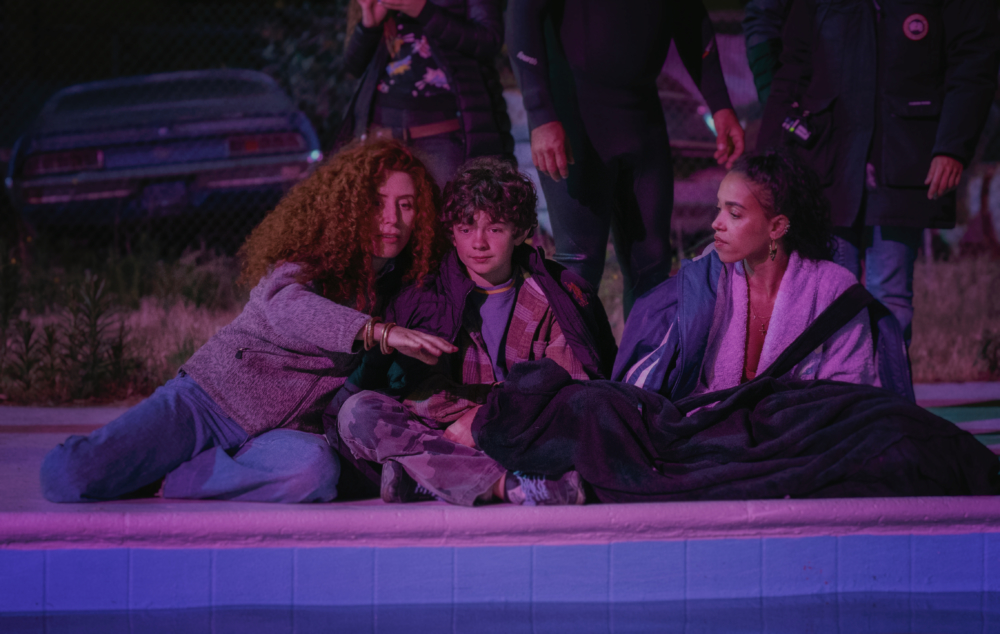
Har’el with Noah Jupe and FKA twigs on the set of Honey Boy.
VEITCH: Was this around the time of his arrest?
HAR’EL: Yeah, right after we made my film he got arrested and was court ordered to go to a rehab facility, where he was diagnosed with severe PTSD and was ordered to do exposure therapy. That involved writing all of his memories from his time as a child actor on the Disney Channel show Even Stevens. Then he started just emailing them to me.
VEITCH: As a friend, or as a director?
HAR’EL: As both. We started working on it while he was in rehab. Three weeks after he got out, we were already diving into pre-production.
VEITCH: Honey Boy is largely a work of autobiography, and you mentioned that you could relate to some of the experiences in the film. As a director, how do you handle the weight of this layered trauma on set?
HAR’EL: I mean, it was a very unique project in that regard. I’d just finished LoveTrue, which works with similar themes but involving real people, therapists and also actors. That project blurred some of the lines between documentary, scripted film and therapy. So Honey Boy was a continuation of that work. I also relied on Shia’s therapist from rehab to educate me on PTSD and how to deal with breakdowns that he would sometimes experience.
VEITCH: Naturally.
HAR’EL: He was just the most dedicated actor you could wish for. He was always first on set. It was a very professional environment. The challenge was just to make it a safe space for everybody.
VEITCH: Shia LaBeouf is a controversial figure. What do you think people don’t understand about him?
HAR’EL: People don’t look at Shia’s behavior in the context of mental health. PTSD is mostly associated with soldiers or victims of extreme violence. But some of Shia’s experiences— from his childhood at the motel to being present when his mother was raped, to a car accident that almost chopped off his fingers while he was making Transformers—gave him very severe PTSD. People don’t know that PTSD causes irritability and impulsiveness and aggression. When he’s triggered and there’s nobody around who knows how to react, it can escalate.
VEITCH: And all that, combined with alcoholism.
HAR’EL: Exactly. People who grew up watching Even Stevens don’t realize there was a totally different reality he was living in. I think the film will give people insight into that reality.
VEITCH: Tell me why you cast FKA twigs to play Shia’s neighbor at the motel.
HAR’EL: I hired twigs because she’s an incredible performer and artist. I looked for someone with a body of work that had an otherworldly quality. I was looking for somebody that can inhabit both the mother and the whore. I felt that she could bring something to it that nobody else could.
VEITCH: Has Shia’s father seen the film? He fled the U.S. a couple years ago to avoid arrest. What does he think of Shia’s portrayal of him?
HAR’EL: Before we made the film, Shia went to South America, where he’s living, to read him the script and get his approval. When we finished the movie, Shia screened it for him. I received a really beautiful note from him.
VEITCH: That must have been a healing moment, for both you and Shia.
HAR’EL: It really was.

